If you’re a newbie campervan renter, planning your first camper adventure is in many ways quite exciting. You’ve likely been busy studying up on your routes, researching and selecting a vehicle, and asking people what it’s ‘really like’ to drive and live in a camper. The good news is that many other travellers have done this very thing as their ‘first time’ and there’s lots of expert advice to be found.
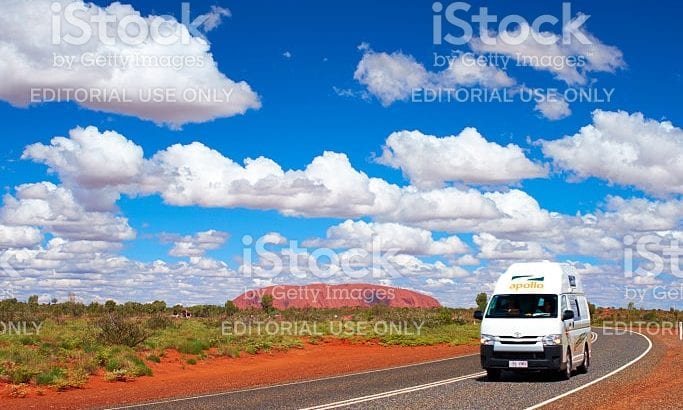
Types of Campers:

Stationwagon:
The absolute least costly vehicle that you can sleep in would be a standard stationwagon, which seats five and converts to having space for two to sleep.
Being that it’s in reality a car and not a camper, there would be no amenities – just a space to sleep. Some companies do include a tent option with stationwagon
rentals.
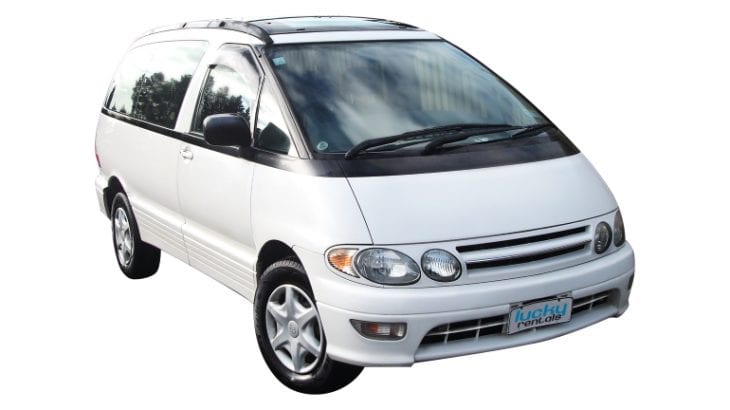
Lowtop Van:
A very commonly seen vehicle out on the road, a lowtop is suitable for two adults in cosy quarters.
While models vary, a lowtop may be outfitted with the basics of a gas stove, a fridge or a chillbox, and cooking utensils.
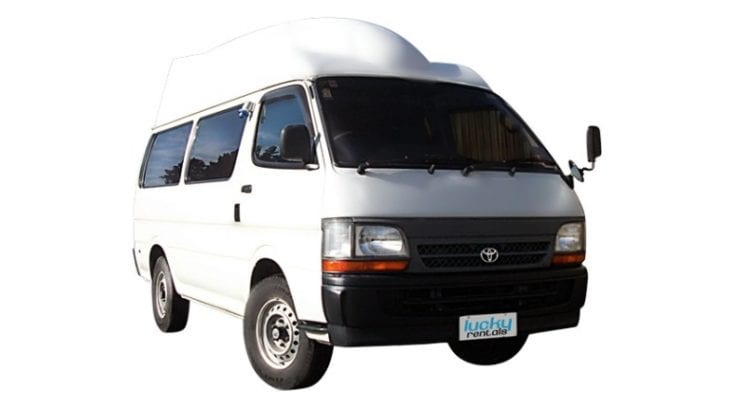
Hitop Van:
A bit taller van, hitop models can sleep as many as five people and may have a few more features.

Motorhome:
Motorhomes are the largest and most deluxe campers available and definitely allow for more ‘manuvering room’ for families and groups.
A motorhome is an ideal choice if you want to spend time inside your vehicle, sit at a table, have a full kitchen, and carry your own toilet and shower facililies.
In New Zealand, a motorhome can be stickered as ‘self-contained’ which will allow you to make use of ‘freedom camping’ on public lands.
The Big Question: “What’s It Like to Drive a Camper?”
Is a Campervan Difficult to Drive?
In many ways, driving a campervan will soon feel as familiar as driving your own car. The key points to remember are that your hired vehicle is longer, wider, heavier, and taller:
- Longer: A longer vehicle makes turns more difficult as well as parking. It’s helpful to think of ‘squaring’ your corners; always wait for the rear wheelbase to reach the intersection before beginning your (wide) turn.
For parking, the mirrors are usually extra large on campervans and there may even be backup cameras. There are, however, also often a few blind spots and limited visibility directly behind the vehicle. It’s always recommended to have a passenger exit the camper and assist with parking situations.
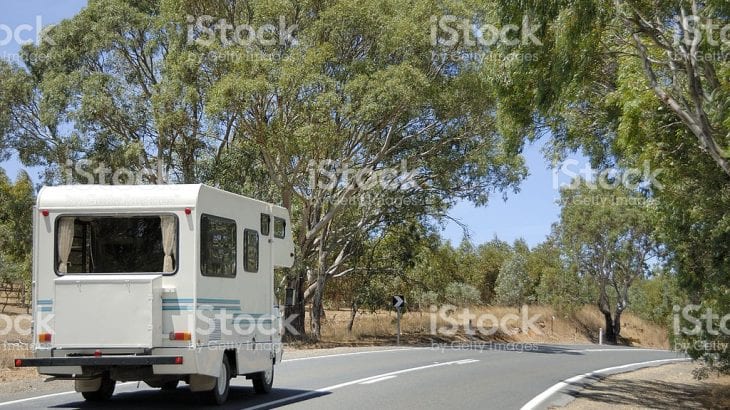
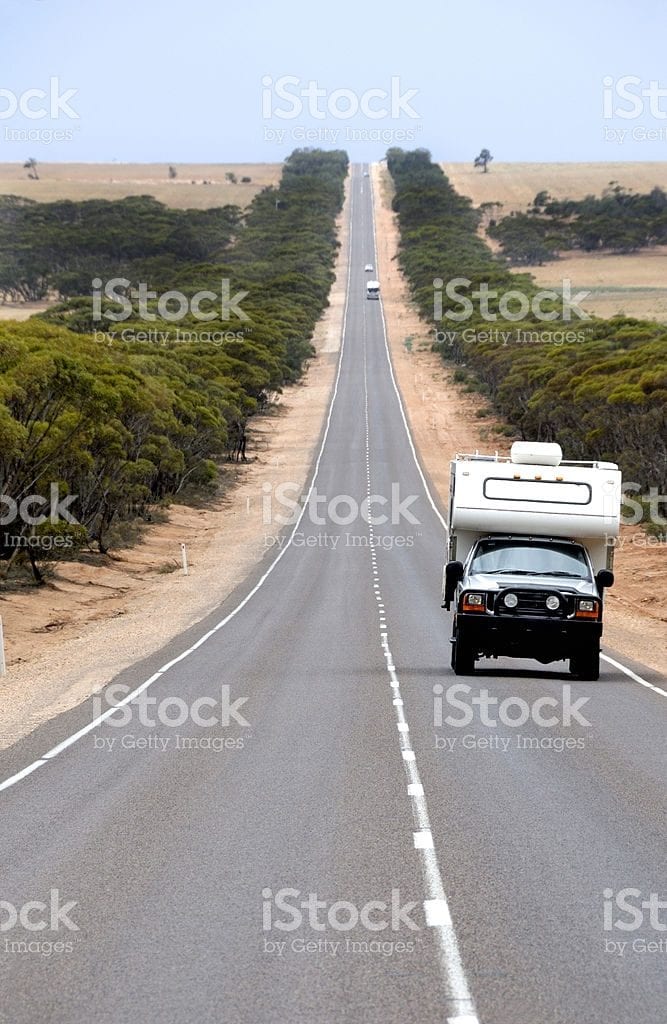
- Wider: On narrow roads, be mindful that you may be nearly filling the lane, especially if you’re also winding around curves for which you’ll need extra room. Keep an eye out for one-lane bridges (very common in New Zealand).
Your added length also can result in a fair amount of ‘tail swing’, which affects your width – always allow ample space at petrol stations and when leaving parking spots for the rear of your vehicle, to swing out as much as nearly a metre.
- Heavier: Driving a heavier vehicle requires extra time and distance to slow down and to stop. You’ll also have more difficulty gaining traction on muddy roads and it could be tough to easily overtake other vehicles on the road. Note too, that you’ll accelerate rapidly on downhills, necessitating the use of engine breaking.
- Taller: Extra height means you may not fit easily in car parks or under bridges and that low-hanging branches may scrape your roof. You’re also likely to be more affected by strong crosswinds and a higher center of gravity means you’ll have more tip hazard, especially on turns.
You’ll hear this often, just take it slow. Focus on making every motion slowly, gently, and carefully – and then slow it down even more from your first try. Allow extra space and extra time to complete your maneuvers and have as a goal learning to ‘feel’ how the vehicle behaves.
Will I Receive an Orientation?
Yes, your hire company will allow a time slot for you and a representative will explain in detail all the operations and features of your vehicle. This time is yours – ask anything you might want to know! There will be an owner’s manual inside your vehicle and many companies have mobile apps as well for information on the go. Orientation videos are often shown at the hire depot, but many are also available in advance online.
Things To Know Beforehand:
Drivers Licence Requirements

International visitors are able to drive in both Australia and New Zealand simply using their home licence, provided that license is in English – if not, a translation or international permit must be secured.
Always refer to the country of hire (and specific state for Australia) for full details and requirements.
Hire companies will also generally require that your licence be a full or open licence and not in a provisional status.
Tolls and Road Taxes

Australia has toll roads in and around Melbourne, Sydney, and Brisbane, while New Zealand has them on the North Island in Auckland and Tauranga. Some hire companies will include the use of an electronic toll card, while others will require you to purchase your own.
New Zealand additionally has a tax that applies to diesel vehicles, commonly called a Road User Tax. Some companies will include these fees in your price, while others will charge you at the end, based on kilometres driven.
Manual or Automatic

Those who are primarily familiar with automatic transmissions may feel daunted by renting a manual campervan. Check your options; there are companies who do rent many automatic models if that is your preference.
Smoking and Pets are Big No-No’s

While campers might seem like they would be pet-friendly, hire companies don’t tend to allow it. And as with all hired vehicles, no smoking is allowed inside.
Restricted Roads
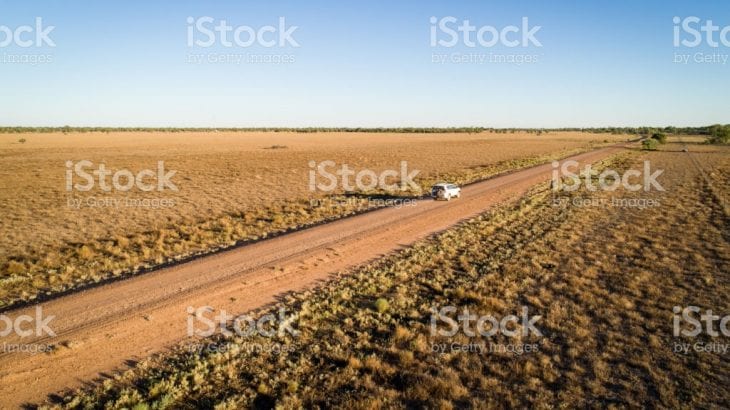
It’s not uncommon for unsealed roads (at least certain ones) to not be allowed per your hire contract, though there is often an exception made for entrances to campgrounds.
Every company has their own list of prohibited roads; make sure to check in advance and know, what routes are suitable for your rental.
Rentals are by Calendar Days

Cars are typically hired on 24-hour cycles, but a camper rental is calculated on a calendar day basis.
This means you’ll be charged for a full day if you collect the vehicle in the afternoon – but you could also collect it in the morning and return it in the afternoon with no extra costs.
Fuel

Fuel comes in two types, petrol and diesel, and it’s a bit of a toss-up which one is ‘better’ cost-wise.
In general, diesel gets better mileage but can be more costly at the pump. Perhaps most importantly, petrol is more easily found especially in rural areas.
Remember to always fuel up, before going into remote areas – especially in the evenings, on weekends, and on public holidays.
Both Australia and New Zealand have easily obtainable mobile apps to assist you in locating service stations and comparing fuel prices.
What’s Included
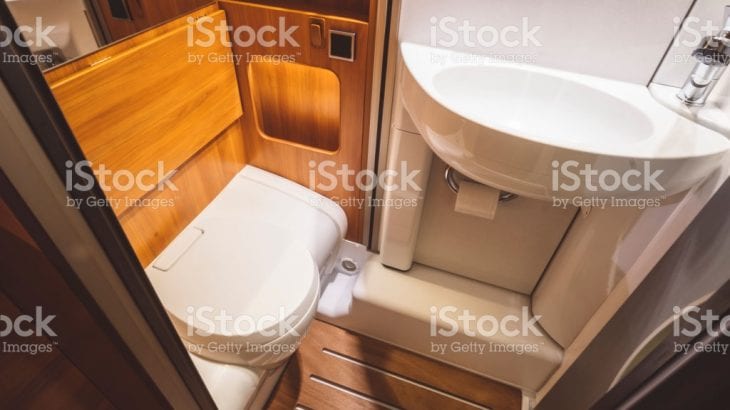
There are many types of campers available for hire from the very basic to highly luxurious, and everything in between. You’ll want to carefully look over the specifications to insure a vehicle meets your expectations.
In general, kitchen supplies are included for any vehicle that includes cooking equipment. In smaller vans, kitchenettes may include a cooler (Esky) and not a fridge, and any ‘shower’ may be an external one.
Linens may or may not be included and not all vehicles can accommodate child seats. Motorhomes will have toilet facilities onboard, while some campervans do and some don’t.
Packing and Storage
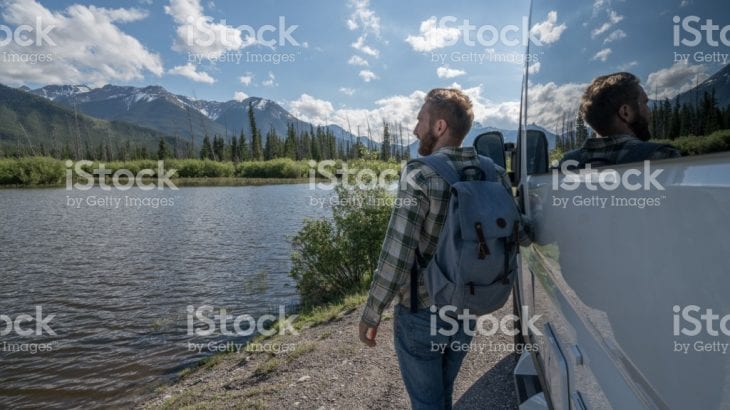
Unless you’re a couple hiring a larger motorhome, you’ll probably find the space in a camper pretty cosy.
While if you want to pack essentials – especially in areas, where they won’t readily be available – you should also be mindful of the limited space and attempt to pack lightly.
Note that soft-sided luggage works better than suitcases for squeezing into storage bins. Also, before pulling out from the company lot, make sure to secure all loose items.
Technology Matters

While mobile phone coverage is widespread, you should always have a backup plan for remote areas of no service. GPS systems are available in some vehicles, though often with an additional charge.
Vehicles vary in their ability to charge devices – some vehicles can charge devices, while in motion only, and/or may require a converter. Some campers come with the ability to hook up iPods and MP3 players into the sound system.
If any devices are crucial, you will want to ensure that your vehicle has what you need to stay connected, or plan on staying nightly in areas with Wifi and power.
Waste
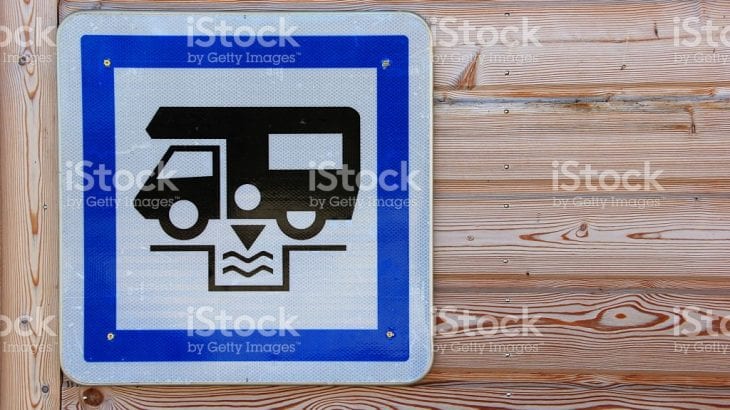
If your vehicle comes with a toilet, you’ll need to plan to dump your waste every 2-3 days.
Dump points are readily available both in holiday/caravan parks (where a dump is included in the cost to stay there overnight) and many other clearly signed places along popular camping routes.
Some chemical toilets have a self-contained cassette roughly the size of a pillow that easily empties into the hole at the dump site.
Campers with wastewater tank systems will want to empty the blackwater first (from the toilet) and then the greywater (from the sinks) second, to help keep the house clean.
A nice item to have for this process is a small package of disposable gloves.
Power
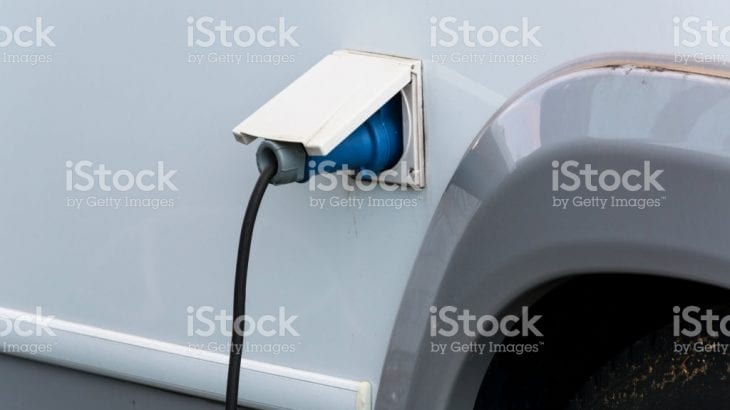
Typically, campers have two batteries – one that runs the engine and the other for the living equipment. The second battery can hold charge for roughly 10-14 hours – basically enough for your overnight camping.
Some campervans will be designed to hook into power at night to use all their features, yet smaller ones may not have the ability to plug in.
Some campervans won’t have heat or a/c if you’re not connected to external power or utilising a generator and sometimes you’ll need to employ a fan or a heater.
Because campers vary greatly in these matters, always make sure to understand your vehicle’s power needs and abilities!
Overnight Parking
While camping is technically allowed anywhere, it’s not expressly prohibited, it’s frequently discouraged along heavily travelled routes. You’ll receive a campsite directory with your rental and generally, you’ll want to overnight, where there will be power hookups, Wifi, and dump facilities, at least every few days.
New Zealand allows what is called ‘Freedom Camping’ on public lands in self-contained stickered vehicles only as well as at over 200 Department of Conservation Campsites. Australia’s regulations for camping in National Parks vary by state; some are available on a first-come first-served basis only and some only accept cash payment.
Both countries have extensive networks of the major caravan park (holiday park) chains such as Big4, Discovery, and Top Tourist Parks. While they may cost a few dollars more, holiday parks are safe, reliable, and offer full kitchens and showers for those in more basic vehicles.
Reservations are strongly recommended (even by calling ahead early in the day) for caravan parks during peak travel times.
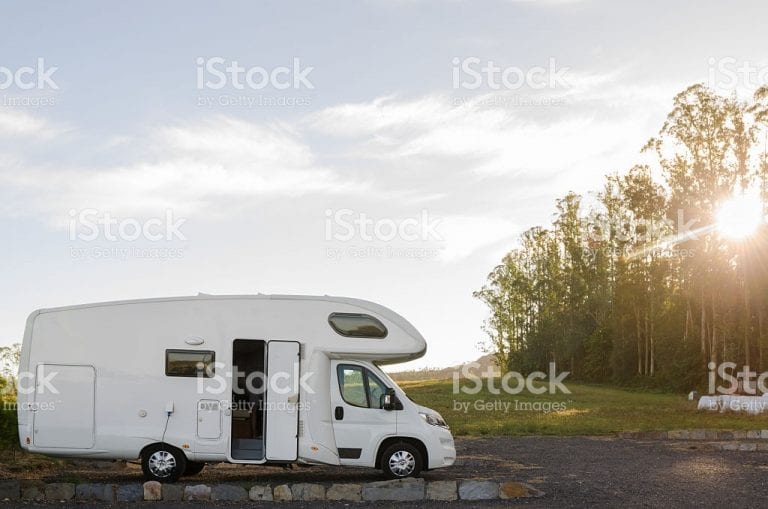
Other Common Questions:
Will I need to pay a bond to collect my vehicle?Insurance options vary between hire companies, though there are generally similar plans, which may allow you to either reduce the excess through payment a daily rate, or utilising your own insurance. What you will then be required to produce for a bond, will depend on which plan you decide best meets your needs.
What extra fees could I be charged?
Hire companies will advise you upfront, what is included and what additional charges may apply, both of which vary between individual companies. Some possible fees could be incurred for extra drivers, younger drivers, and pickup or return on a public holiday.
What do I do in the case of a collision or a breakdown?
When you collect your vehicle, you’ll be provided with contact information for roadside assistance.
Are there special driving laws that apply for campervans?
Neither Australia, nor New Zealand have any special traffic laws for campers. As always, you’ll want to read up on the road rules from the appropriate authority.
How far should I plan to drive daily?
A best recommendation is not to plan more than 400 km of travel per day. This will allow you time to sightsee, get to a campsite, while the sun is still up, and not incur prohibitive fuel costs.
How do I take my campervan on the Cook Strait ferry?
Unlike cars, which are often hired on just one island, campervans in New Zealand do indeed cross on the ferry. A reservation is required and your hire company can assist in arranging this for you – as with the vehicles themselves, reservations will be busy at peak travel times.
An interesting point to note is that most international visitors will rent from the North and return in the South, meaning it’s often both cheaper and easier to travel from South to North.
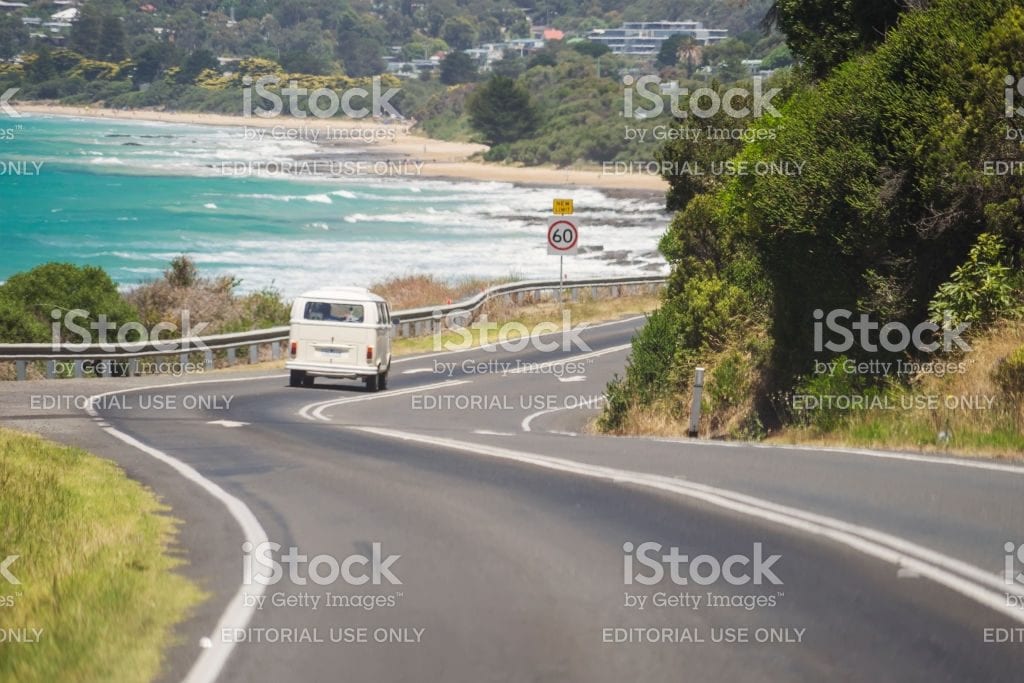
Will I need snow chains?
Snow and ice are possible (especially in New Zealand) in certain areas from late fall through early spring, though you’ll probably not need chains, unless you’re aiming to go skiing or travel through mountainous areas in winter (note that chains are required on Milford Road between July and October).
If required, many camper companies can rent you chains and show you how to use them. Ask in advance, as sometimes these will need to be pre-reserved. Winter travel, particularly in New Zealand, is subject to extra considerations and it’s always recommended that you discuss your plans with your hire company.
